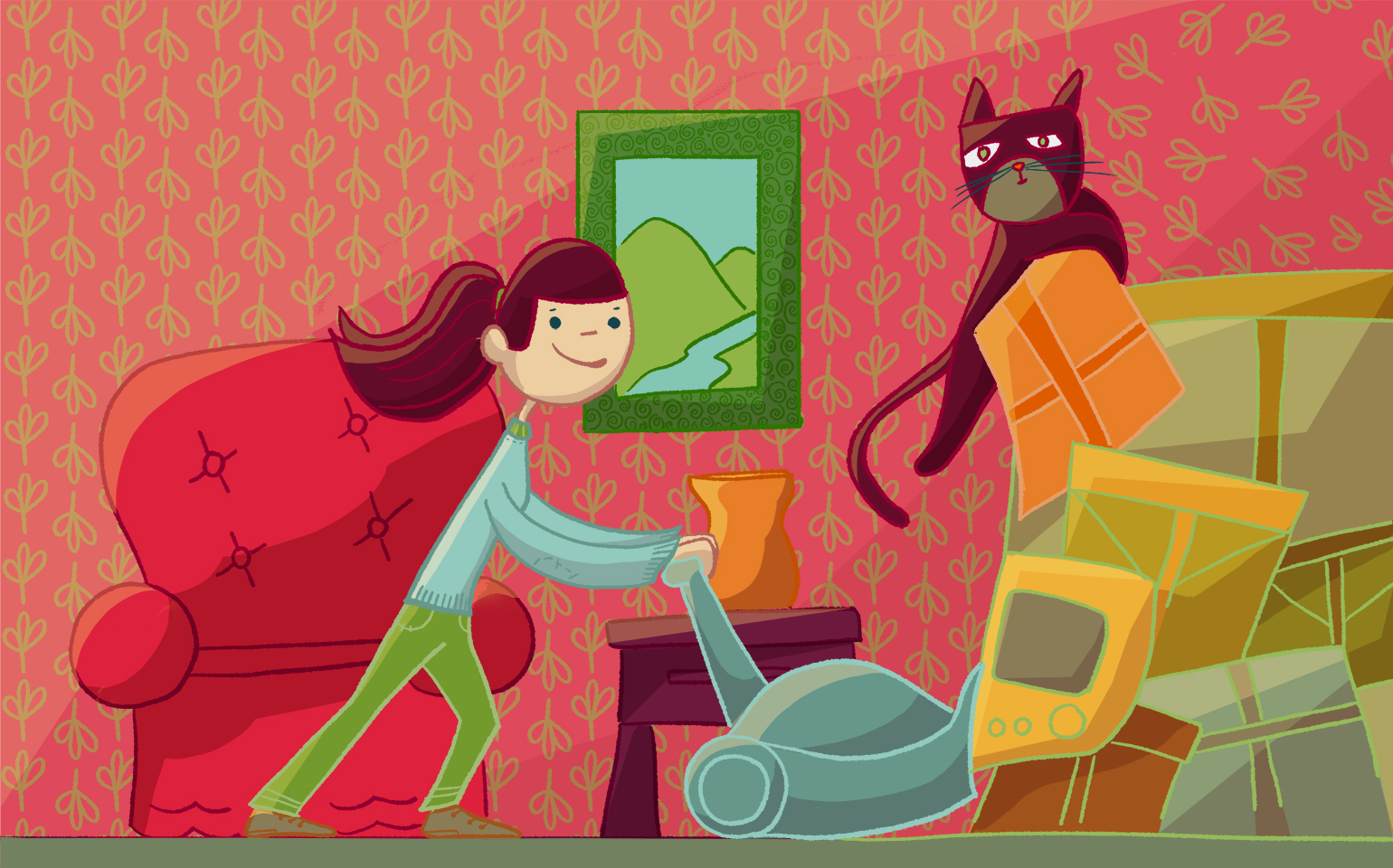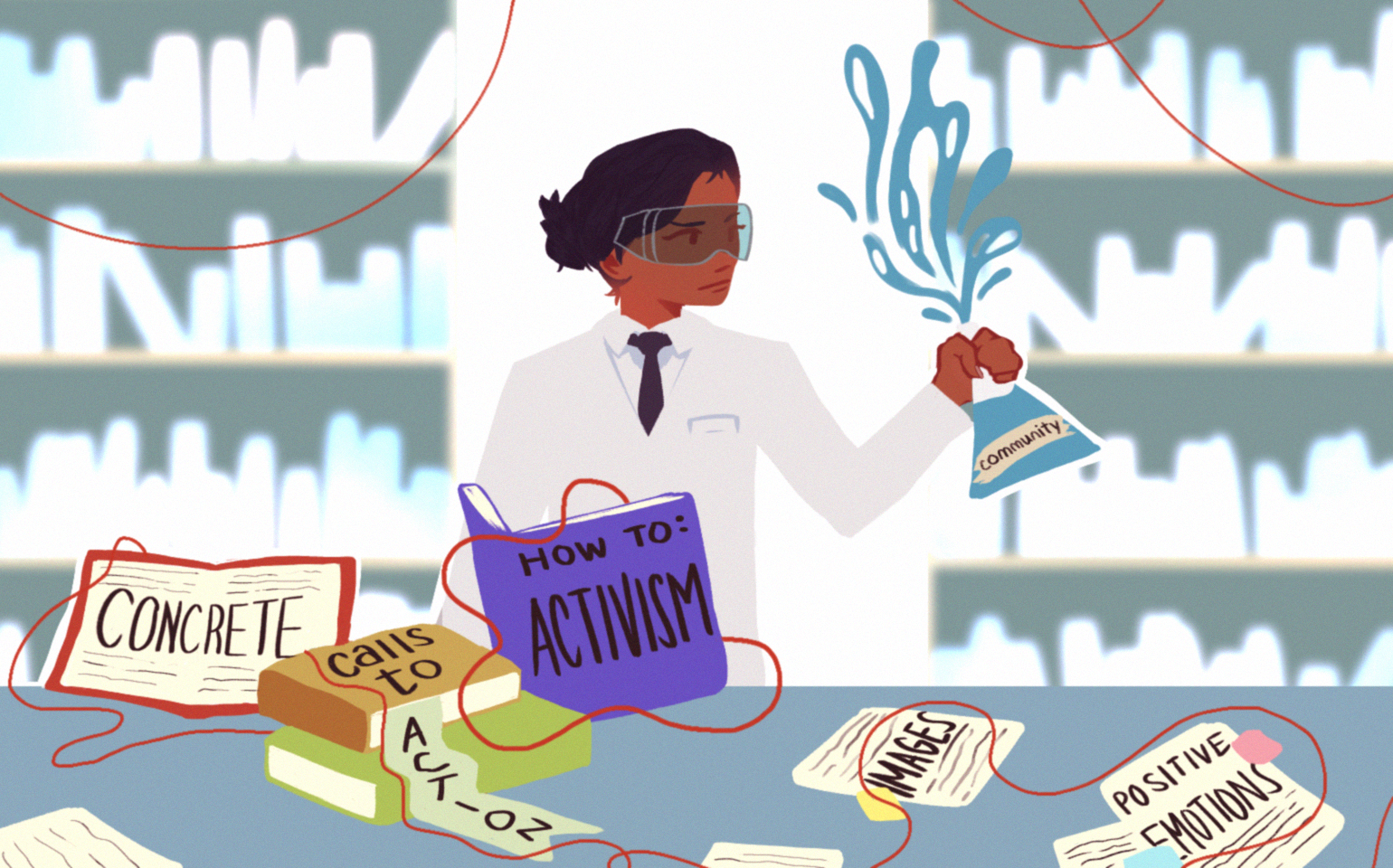Living Lighter: The Power of Minimalism and Decluttering
A couple years ago, my family and I moved houses. Every day we would pack a box, preparing for the big move. As I sifted through my belongings, I couldn’t help but feel overwhelmed by the sheer volume of items that had accumulated over the years—my room alone packed at least 5 boxes. Toys from when I was a toddler, clothes I hadn’t worn in ages, trinkets that no longer held any significance in my life, all cluttered my space. It was a wake-up call, prompting me to question the necessity and impact of all my possessions.
After realizing how much clutter we had, I researched what I could do about it. I soon stumbled across the concept of minimalism: the pursuit of owning less to live more joyfully and intentionally.
Minimalism allows us to break free from the burden of excessive material possessions, and enables us to focus on experiences, relationships, and personal growth, ultimately leading to a more fulfilling life. However, despite all the benefits, living a minimalist lifestyle isn’t easy, especially in today’s consumerist society. So, what can we do to avoid cluttering? And how can we embrace minimalism in our daily lives?
Start small
Decluttering is no easy task. Every year, when the phrase “spring cleaning” comes up, I’ll admit, it can feel overwhelming. Where do I even begin? I’ve learned that the key to tackling clutter is to start small and gradually expand outward. Pick one area, like your desk, or even just the top drawer, and start from there. For instance, in your desk, you could easily get rid of dried-up pens, broken pencils, or outdated notes. By starting small and accomplishing this first step, you’ll feel more motivated to continue decluttering.
Organizing is not decluttering
Although decluttering often gets mistaken for organizing, there is a clear distinction between the two. Organizing is rearranging or coordinating things to make a space more functional or aesthetically pleasing. Decluttering is getting rid of things you don’t need. If you organize rather than declutter, you are simply moving the clutter elsewhere. To avoid this common mistake, I suggest assessing which of your items are to keep, donate, sell, or trash. Try to be honest with yourself in this process. After discarding the unused items, you can focus on organizing. This way, instead of shuffling clutter around, you will truly improve your space and move toward a more intentional and minimalist lifestyle.
Your home is not a storage unit
Have you ever looked at something and thought, what if I need this tomorrow, in a week, or next month, and then stuffed it in some cabinet, only to forget about it for another six months? If so, you’re not alone. It happens to everyone. Next time you clean your house, think twice before keeping something. If it’s a stack of notes or research, consider if that same information can be found on the internet. If it’s a trinket or toy, think about why you want to keep it, or if it’s purely sentimental. A lot of people will keep items because of their sentimental value, and that’s perfectly okay. Cherishing memories is an essential part of life. However, it’s important to find a balance. One approach is to select a designated space, like a display shelf, where you keep your most treasured sentimental items. Limiting storage space will naturally encourage you to prioritize the most meaningful items, while letting go of others that don’t hold the same significance.
The two-week thing box
Sometimes it’s hard to decide right away whether you want to keep or get rid of something. One of the best ways to solve this issue is to put those items in, what I call, “the two-week thing box.” After two weeks, if I haven’t touched anything in the box, I get rid of it. Some items that can go into this box include books you’ve collected, infrequently worn clothing, or old kitchen gadgets. I would avoid adding decor or sentimental items as they tend to be on display rather than physically used. Just remember to leave the box in a visible place, so that you don’t forget about it.
Quality over quantity
Living a minimalist lifestyle doesn’t mean you have to swear off buying new things forever. Instead, approach shopping with a focus on quality over quantity. For example, investing in durable and well-made furniture, like a sturdy dining table or a high-quality mattress, can prevent the need for replacements in the future. Similarly, purchasing reliable electronic devices, such as a well-reviewed laptop or smartphone, can save you from frequent upgrades. Prioritizing quality purchases not only aligns with a minimalist lifestyle but also encourages a more sustainable and cost-effective approach to shopping.
Experiences as gifts
Experiences have grown to be a tradition in my family. Rather than purchasing each other gifts we’ll only use once, or things that will add to the clutter in our home, we often try new things instead. Whether it’s exploring a new hiking trail, taking a cooking class together, or embarking on a challenging escape room, buying someone tickets or a gift card for a specific experience is an easy way to reduce the amount of stuff we all collect. Not to mention, it’s a fun and memorable gift that can fit any budget.
Appreciate what you have and don’t give up
Remember to always appreciate what you have. If you walk around your house and suddenly realize you have collected more stuff again, don’t panic. Start from the beginning and choose somewhere small to clean again. Breaking habits is a long process, and it will take time to completely declutter and learn to live with minimal possessions. Embracing this gradual approach is crucial because it allows you to avoid burnout and discouragement, making the journey more sustainable and rewarding. By celebrating each small decluttering achievement, you reinforce positive habits and build momentum, which helps you stay motivated throughout the process.
Ultimately, the benefits of decluttering and minimalism lie in the freedom they bring. Living a minimalist lifestyle can help us shape our lives to concentrate on what we truly value.
With fewer material distractions, we gain a clearer understanding of our priorities and are better equipped to invest time and energy into meaningful experiences, important relationships, and continuous personal growth. Decluttering our physical surroundings helps us clear our minds and focus on our goals and aspirations. Overall, it leads to a life where each step toward minimalism becomes a deliberate choice in building a life we genuinely desire.
Now, when I’m moving houses, or when I’m simply looking for a cleaner space, I embrace minimalism and decluttering as a journey. Rather than feeling overwhelmed, I start small and continue working toward what I hope will be a minimalistic life.




